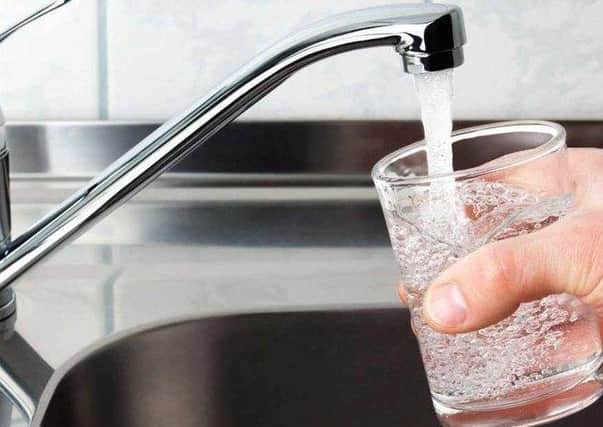Water charges on agenda over failing water system - but DUP says families can't pay more


The Audit Office says a lack of capacity in NI’s water and sewage system means applications in 100 areas haven’t been able to fully proceed.
The figures emerged in a report published today by Northern Ireland’s Auditor General, Dorinnia Carville, which has called for “appropriate arrangements” from public bodies to manage investment in the system.
Advertisement
Hide AdAdvertisement
Hide AdIt highlights a previous report by the Northern Ireland Fiscal Council which concluded “there remains scope for increased fiscal effort on the part of the executive, via regional rates, domestic water charges and other charges”.
But the DUP MLA Deborah Erskine said “There must be recognition that our sewage and water infrastructure belongs to a bygone age but we can’t expect working families to stump up more for a failing service.”
She said the Audit Office “paints a very stark picture about the challenges facing our water and sewerage infrastructure. Some of the issues facing NI Water are similar to those impacting water companies right across the United Kingdom, but it is repeatedly highlighted how we are more constrained here because NIW has much more limited flexibility in terms of funding and governance arrangements”.
She said the delays caused to developments “will hit our plans for social housing, the environment and growing our economy with constraints in water infrastructure limiting the number of new jobs we can create. From Infrastructure committee evidence, we also know that without adequate funding 19,000 proposed homes are at risk of going ahead and 55 commercial development are very unlikely to progress.
Advertisement
Hide AdAdvertisement
Hide Ad“Water infrastructure has been one of the casualties of underfunding across public services in Northern Ireland for decades. Treasury has only latterly accepted that we have been funded below need but failed to take account of previous underfunding. That has meant we have not received hundreds of millions of pounds which services like water and sewerage desperately needs and is entitled to. The stark reality is we are funding the basics and that is ensuring clean drinking water reaches homes. In 2024 that’s a very stark and sad picture.
The Audit Office report looked at how the entire water infrastructure has been managed since Northern Ireland Water was set up back in 2007.
It highlights a previous independent review in 2007, commissioned by the then Department for Regional Development, which said that NI Water inherited a network of assets that had suffered from lower levels of investment than other regions of the UK.
It says that since the independent review was published, there have remained major challenges to securing the level of investment in water infrastructure required to deliver services.
Advertisement
Hide AdAdvertisement
Hide AdThe report also says that NI Water’s existing funding model contributes to uncertainty over whether the level of investment that is needed will be available – and that major economic issues since 2007 – such as the financial crash of the late 2000s, and recent inflationary cost pressures have made paying for the necessary investment more difficult.
It says that the money available to NI Water in the past financial year was approximately £93 million lower than what it had deemed as being necessary to meet the challenges it faced.
That situation is unlikely to change in the coming financial year according to the auditor general, and her office says that is “likely to significantly affect the delivery of the assets planned for development”.
Commenting on her report Dorinnia Carville said it: “highlights the challenges that decision-makers have faced in securing the finance and investment needed to meet water infrastructure requirements in the coming decades.
Advertisement
Hide AdAdvertisement
Hide Ad“A very real consequence of this underinvestment is that there are many areas in NI where new development, including the construction of homes and other buildings, is restricted due to insufficient capacity to connect to sewage and wastewater services”.
Comment Guidelines
National World encourages reader discussion on our stories. User feedback, insights and back-and-forth exchanges add a rich layer of context to reporting. Please review our Community Guidelines before commenting.